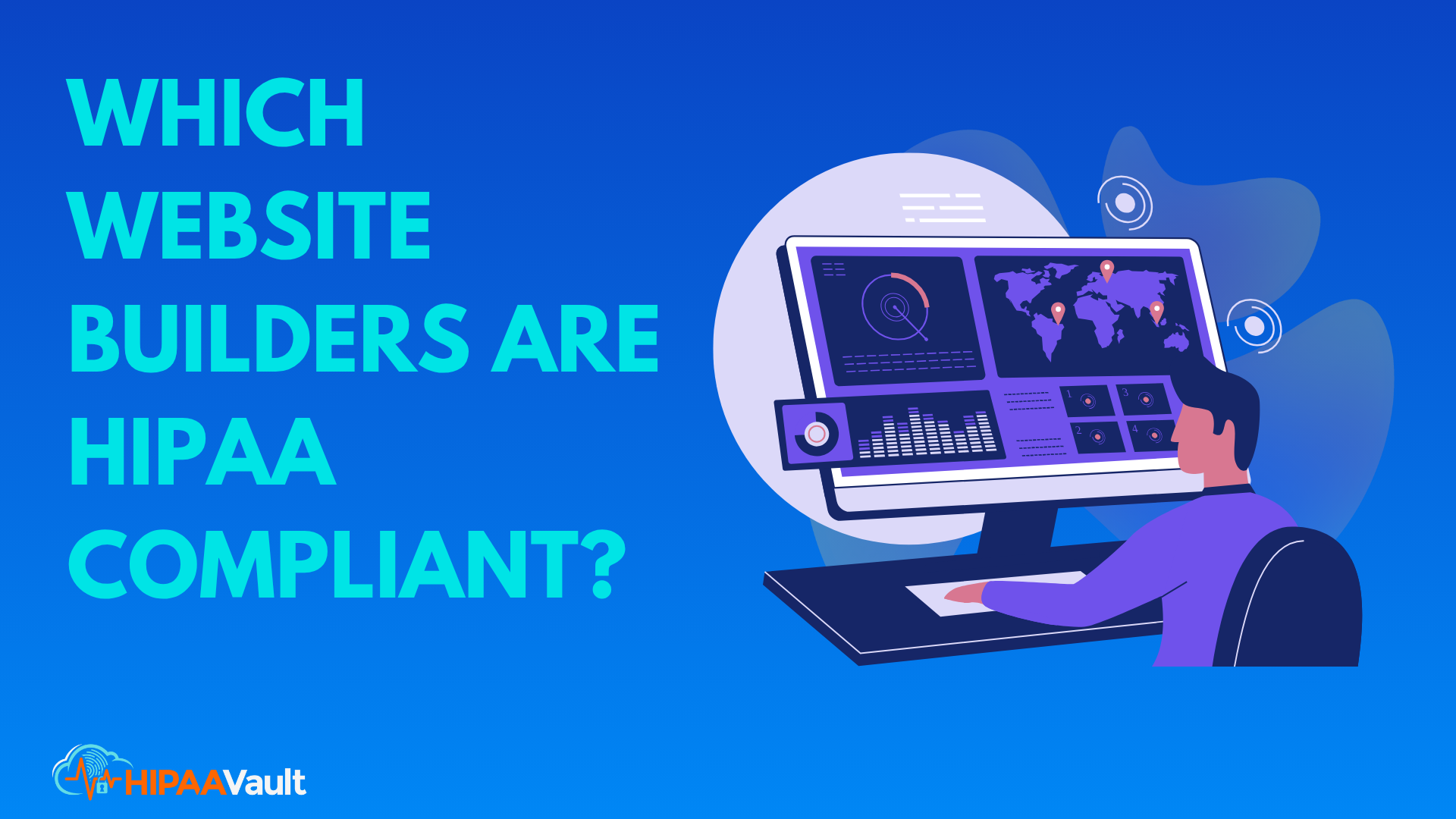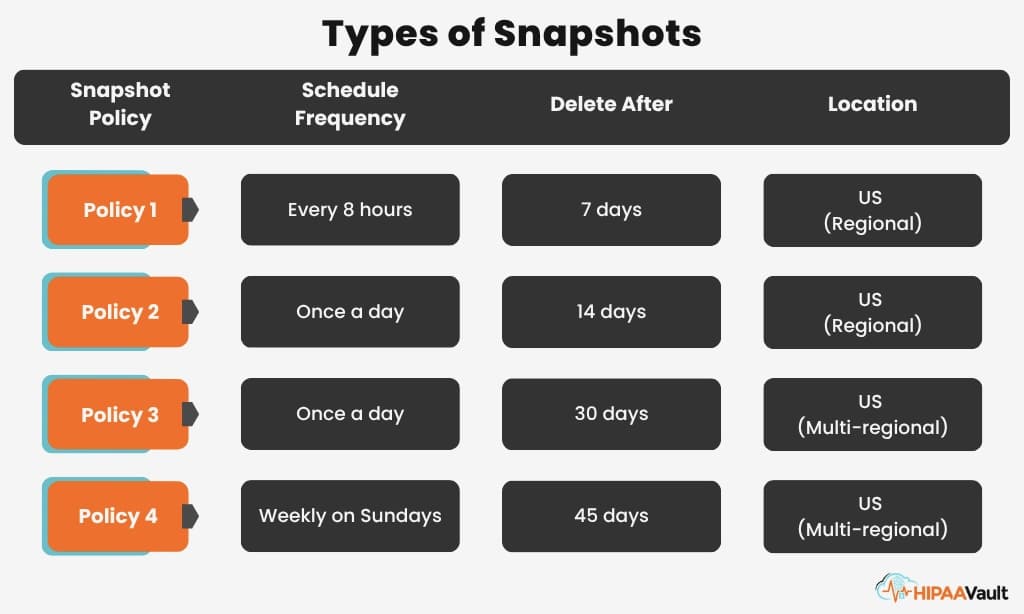As more healthcare providers and digital health brands build their online presence, a critical question arises: which website builders are HIPAA compliant?
If your site collects, stores, or transmits Protected Health Information (PHI), you’re legally obligated to follow HIPAA’s Privacy and Security Rules. Failing to do so can trigger serious penalties and damage patient trust. But not every drag-and-drop builder or CMS is up to the challenge.
In this guide, we’ll explain how HIPAA applies to web development, what features make a website builder compliant, and how HIPAA Vault helps deliver secure, scalable healthcare websites.
Which website builders are HIPAA compliant
HIPAA does not endorse specific website builders, but it does require that any platform handling PHI meets strict criteria. This includes secure data transmission, storage encryption, access controls, and an executed Business Associate Agreement (BAA).
Most mainstream website builders—like Wix, Squarespace, or the standard versions of WordPress.com—do not offer BAAs and cannot be used for HIPAA-covered content out of the box. Without a BAA, even encrypted hosting does not fulfill HIPAA’s legal requirements (45 CFR § 164.502(e)).
However, developers and healthcare providers can still use open-source tools or customized CMS platforms in secure environments. For example, WordPress configured on a HIPAA-compliant server, such as those provided by HIPAA Vault, is a proven solution. The hosting environment—not just the CMS—plays a pivotal role.
HIPAA Website Requirements: What You Need to Know
If your website includes patient intake forms, telehealth features, appointment scheduling, or any data tied to medical records, it is subject to HIPAA.
These sites must encrypt data in transit and at rest, enforce access restrictions, log user activity, and have safeguards to prevent unauthorized access. Most importantly, any third-party service (like your hosting provider or form builder) that processes PHI must sign a BAA.
According to the U.S. Department of Health & Human Services, website developers must consider these requirements at every level—from infrastructure to design. Failing to meet them is not just a technical oversight; it’s a compliance violation.
(Source: HHS HIPAA Website Development Guidance)
What to Look for in a HIPAA-Compliant Website Builder
Not all website builders are created equal. To be suitable for healthcare use, the builder must meet several technical and legal standards.
It must offer secure form integrations that encrypt PHI both at rest and in transit. End-to-end encryption is vital. You should also be able to configure role-based access controls so that only authorized staff can view sensitive submissions.
HIPAA-compliant builders should include detailed audit logging. Every user login, data entry, or system change must be traceable. This supports your organization’s risk assessments and incident response plans.
Crucially, the vendor or hosting provider must be willing to execute a signed BAA. This contract ensures they accept responsibility for safeguarding PHI under the law.
Configuring WordPress and Other CMSs for HIPAA
WordPress remains a leading choice for custom medical websites, but the default installation is not HIPAA compliant. You must deploy it on a HIPAA-secure server, harden the platform, and ensure all data collection plugins meet compliance standards.
That includes form builders like Gravity Forms or WPForms configured to encrypt data, enforce HTTPS, and store submissions in secure databases. Emails sent with PHI must also be encrypted or avoided entirely.
HIPAA Vault offers a fully managed HIPAA-compliant WordPress service, which includes a signed BAA, encrypted storage, intrusion detection, and 24/7 monitoring. That lets developers focus on UX and performance while ensuring backend compliance.
Alternatives and Caution with No-Code Builders
While some no-code platforms advertise “healthcare-ready” features, many lack the ability to execute a BAA or fully encrypt backend data. Always verify with the vendor and request compliance documentation.
A few specialized vendors claim HIPAA support, but pricing may be high, and customization limited. HIPAA Vault’s secure hosting for WordPress and custom apps provides a flexible and compliant alternative for organizations that need full control.
For marketing agencies or developers working in healthtech, white-labeled HIPAA environments can allow you to offer branded, compliant services to clients—without taking on infrastructure risks.
Final Thoughts: Build with Security from the Start
HIPAA compliance isn’t optional when dealing with patient data. The tools you use must support security best practices and legal safeguards.
That’s why it’s not just about asking which website builders are HIPAA compliant. It’s about knowing how the builder is hosted, secured, and managed.
By choosing a platform like HIPAA Vault’s WordPress or working with a compliance-minded infrastructure provider, you can create powerful healthcare websites that meet legal obligations and protect patient trust.
Looking to build a secure healthcare site? Explore HIPAA Vault’s HIPAA-compliant WordPress hosting to launch faster—with compliance built in.








